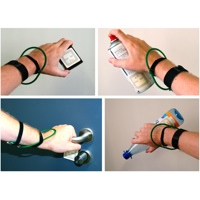
News
Sie sind hier
Ubiquitous Computing

Our research targets an emerging generation of small and embedded computing systems that are equipped with basic processing and sensing modules, thus enabling them to detect, monitor, react on, and learn phenomena around them. We are particularly interested in obtaining multiple simple sensor signals within low-power devices, rather than solutions that focus on few high-quality signals that tend to be more expensive, complex, and/or fragile. The focus lies especially in the algorithms and software models that need to be built on these small computer units, in order to process and characterize the sensors' output, although we also tend to design and build custom sensor hardware ourselves for these systems as well.
Head of Chair

Prof. Kristof Van Laerhoven Ph.D. email: kvl@eti.uni-siegen.de https://ubicomp.eti.uni-siegen.de/
Human Activity Recognition

Activities play a key role in the way we structure our lives. The type of activity, how it is performed, and with whom, can reveal a person’s intention, habit, fitness, state of mind, and social connected-ness; We aim at creating an automatic recognition of human activities over sustained periods of time, using tiny wearable sensors that detect motion- and posture characteristics and map them to human activities.
Affect Recognition

Affective computing aims to detect a person’s affective state (e.g. emotion) based on observations from sensors -- a link between affective states and biophysical data, collected in lab settings, has been established. We focus in our research on methods and systems for physiology-based affective computing in the wild, specifically.

